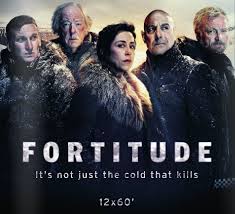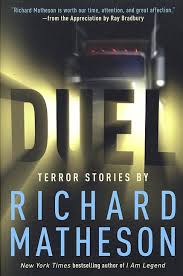Travel as Writing Fodder
Terry Odell
I’m back, and after a prolonged bout of de-jet-lagging, almost functioning again. Before I left, I made the conscious decision that this trip was a vacation. I had no plans to set a book where we traveled. Since I’m an indie author and I haven’t established a due date for the current WIP with my editor, I was free to leave the writing behind.
A week after arriving home, I still hadn’t opened the WIP. My critique partners had sent their feedback on everything I’d written. Their messages sat, unopened, in an email folder. Still no guilt.
Even if I was on vacation, the writer brain never really shut down. I’m willing to predict some of my observations and experiences will show up in a book eventually. Here are a few.
The Travel Process
Our trip began with a flight to Bergen, Norway. Lacking the Enterprise’s transporter, it was Denver to Frankfurt, then to Oslo, then to Bergen. Note to travelers: just because your ticket shows Bergen as your final destination, and because the luggage tags say that’s where it’s going, if you’re going through Norway, it’s not that easy. Something about not being part of the EU, I think, but your baggage is offloaded in Oslo, and you have wait to reclaim it, recheck it, go through passport control and security. And Norway wants everything scanned. We put our hand luggage through the same way we had in Denver, but here they wanted laptops, tablets, cameras, and even one of the Hubster’s lenses. Did they ask for all of these at once? No. They asked about laptops, etc., so we took out our iPads and they sent them back through. Then they asked if we had cameras, and we repeated the process.
We had 90 minutes between flights, and that wasn’t nearly enough given the size of the airport and how many different “stations” we had to find, so we had to get booked on the next flight (fortunately, there are frequent ones), and then figure out how to notify the tour company, which would be meeting our original flight, that we would be late. Helps if you’ve used a travel agent. Helps even more if said agent is your son.
Anyone seeing any plot complications, tension, conflict here?
Communication
Given Bergen is a lot closer to Europe than the US, most of the passengers were from what we’d consider “somewhere else.” I was impressed and embarrassed at how almost everyone could manage to communicate in English. We Americans expect to be understood (and if we’re not, we speak louder), but it’s an arrogant assumption. I made the effort to use my VERY rudimentary German where appropriate. The people I spoke with were good-natured about it and helped me out, but my mastery of their language didn’t come close to their mastery of mine, and they tended to answer me in English. We spent some time with a couple from the Netherlands, and they had little trouble switching from English to German to Dutch.
And, speaking of languages, the primary language on the trip was English, but they repeated all announcements in German and French as well. They offered listening devices to anyone requesting them, and they had staff translating all the lectures as they were presented, which were transmitted to the deivces. What if one of the translators was unreliable? Sneaking coded information to some passengers?
Well, How About Them Apples?
In books, coincidences have to be dealt with very carefully. When we were seated at dinner the first night, the couple next to us spoke “American” and, of course, we asked where they were from. “Colorado.” Could I use that in a book? I’m not sure it would be believable, but they were from the Denver area, so about 2 hours from where I live.
Food
Food, of course, has infinite possibilities. Our ship served all meals buffet style, and there was an abundance of choices. How would characters react to seeing a suckling pig at the carving station? Or five varieties of herring? Three flavors of ice cream (plus toppings, of course).
People
Then there are the characters. There’s the one who makes sure she’s right next to the guide on tours, asking constant questions designed to show off her knowledge of any subject imaginable rather than care what the guide’s answers were. Or the two young couples on a ship filled with predominantly “mature” individuals.
Okay, I’ve droned on long enough. And, as a thank you for reading this far, here are a few pictures. I’ll have more as I work through them, but it’s been slow going. There have been computer issues, which I’m “solving” by getting a new PC, but that’s another whole set of complications.
If there’s interest in me sharing trip details, since our stops were at places far from what most of us probably think of as cruise destinations. Have you ever been to Lerwick, Elduvik, Akureyri, Tórshavn, or Bakkagerði?. Have you ever heard of them? Could you find them on a map? I couldn’t have. Let me know and I’ll follow up with a more “travelogue” style post or two.
Would you feel guilty taking a pure vacation, TKZers? Any questions about the trip?
 Available Now
Available Now
Deadly Relations.
Nothing Ever Happens in Mapleton … Until it Does
Gordon Hepler, Mapleton, Colorado’s Police Chief, is called away from a quiet Sunday with his wife to an emergency situation at the home he’s planning to sell. A man has chained himself to the front porch, threatening to set off an explosive.
 Terry Odell is an award-winning author of Mystery and Romantic Suspense, although she prefers to think of them all as “Mysteries with Relationships.”
Terry Odell is an award-winning author of Mystery and Romantic Suspense, although she prefers to think of them all as “Mysteries with Relationships.”










